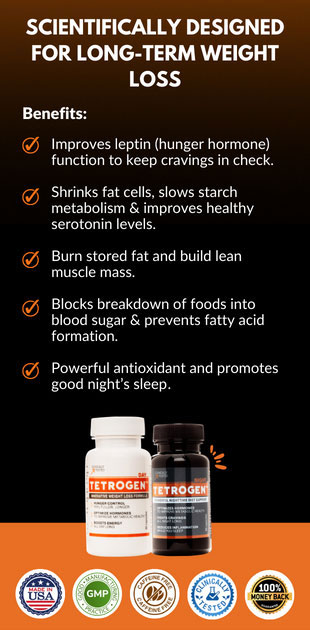
Belly fat. It’s stubborn and hard to lose. The pinchable fat that lies on the surface can cause physical and mental discomfort. It may even lead to a lack of confidence. Worse, when you look at the deep-down visceral fat that can surround the organs, it’s one of the deadliest forms of fat. What are the best ways to lose belly fat? Does reducing sugar intake reduce belly fat?
Let’s take a look at what sugar does to the body to find out.
Sugar, Belly Fat, and Other Side Effects
Indeed, sugar intake and belly fat are often linked. And one of the biggest benefits of reducing sugar intake is losing belly fat. Why?
Because sugar can lead to increased inflammation and stress on the body. As a result, the body stores excess calories as fat around the belly.
What’s more, when we eat sugar (and other refined carbohydrates), it’s quickly absorbed and shuttled into the bloodstream. The body then responds by increasing insulin levels to help shuttle sugar into cells to prevent it from damaging blood vessels and organs.
Sugar has been found to have uniquely harmful effects when it comes to metabolic health. For example, it increases the risk of nonalcoholic fatty liver disease and metabolic syndrome, which increases the risk for obesity and diabetes. 1
Finally, when the liver is overloaded with fructose (sugar is half glucose and half fructose), it’s forced to turn those calories into fat for storage. 2 Liquid sugars (i.e., sodas, juices, and other sweetened beverages) appear to be the worst offenders.
Excess added sugar has other negative side effects from headaches to energy crashes to hormonal imbalances. Because sugar increases inflammation by triggering insulin spikes, it can also lead to skin breakouts.
Consuming too much sugar can also disrupt sleep quality by reducing slow-wave sleep. This is the restorative sleep that helps the mind consolidate memories and catalog new information. Sugar can also negatively affect dream sleep (i.e., REM) and cause you to wake up throughout the night.
Will I Lose Weight If I Stop Eating Sugar?
Losing weight—or fat—takes a well-rounded lifestyle approach. That includes eating a healthy diet, moving your body regularly, staying hydrated, getting enough sleep, and ensuring a calorie deficit of around 300 to 500 calories per day.
Refined carbs, like sugar, are calorie dense but they provide little to no actual nutrition. And if you’re eating those calories, it can also mean you’re not eating the foods that will fill you up and help you lose weight. For example, protein, fiber, and healthy fats can all help you feel full for longer, making it easier to eat less calories. Sugar, especially when it’s in the form of a drink, on the other hand, can actually boost appetite. This is because sugar increases insulin levels in the blood. And high levels of insulin then block leptin signals. Leptin is the hormone that tells the brain “I’m full.” And if you aren’t getting the message that you’ve eaten enough, then you’re more likely to continue eating the sweets as you’re still hungry.
Where Sugar Hides
You may think you’re not eating a lot of sugars if you aren’t adding spoon fulls to your coffee, drinking soda daily, or eating a lot of desserts. Unfortunately, though, sugar is hidden in a lot of foods. So, it can be hard to avoid. It also has a number of aliases, so you may be consuming sugar without even knowing it. Common names for sugar to look out for include:
- Cane sugar (or juice)
- Corn syrup (or sweetener)
- High-fructose corn syrup (or HFCS)
- Rice syrup
- Beet juice concentrate
- Molasses
- Raw sugar
- Turbinado sugar
- Date sugar
- Malt syrup
- Dextrose
- Fructose
- Galactose
- Glucose
- Lactose
- Maltose
- Sucrose
- Fruit juice concentration
- And many more—there are at least 61 different names for sugars found on food labels 3
In fact, 74% of packaged foods contain added sugar. It’s even found in what most people consider savory foods like bread, pasta sauce, salad dressings, sauces, nut butters, ketchup, and many others. It’s also common on many foods that are considered “healthy,” such as yogurt, breakfast bars, high-fiber cereals, and dried fruit.
And while there’s no daily reference value of sugar, the American Heart Association recommends keeping added sugar under 6 teaspoons (25 grams) per day for women and under 9 teaspoons (38 grams) per day for men.
Refined Sugars vs. Natural Sugars
Of course, it’s important to differentiate between natural sugars found in fruits, vegetables, and unsweetened milk. Refined sugars provide no nutritional value, but they’re high in calories. Natural sugars are found in many low-calorie foods (e.g., melons, berries, peaches, apples, and grapefruit) while providing an abundance of vitamins and minerals as well as fiber and other nutrients.
Because these naturally sweet foods are also high in fiber and other nutrients, blood sugar levels remain stable, and there’s no large spike in insulin (or the decrease in leptin that follows).
Don’t confuse fruit with fruit juice or fruit snacks, though. Once the fiber is removed, you’re left with a drink that’s almost pure sugar.
Why Is the Sugar Habit So Hard to Break?
It’s not easy to give up sugar. Why is it so difficult? For one, sugar tastes good. In addition, it also activates the opioid receptors in the brain. This turns on the reward system (via the feel-good hormones dopamine and serotonin) in the brain. In other words, you aren’t imagining it when you think sugar makes you feel so good it’s addicting.
You also aren’t imagining it if you experience withdrawal symptoms when you reduce sugars. You’re likely to feel more tired when you stop. You may also experience headaches, brain fog, sadness, and irritability, especially in the first few days. You may even experience gastrointestinal distress. Fortunately, this is also temporary—lasting a few days to a week or two—and you’ll likely end up feeling better than ever before once your body adjusts.
That doesn’t mean sugar is off the menu forever (we can’t just live on berries and bananas alone). Sugar is part of celebrations, social gatherings, and fun foods. In limited amounts, it can even boost mental health. Plus, becoming overly rigid can lead to an unhealthy relationship with food. It can also lead to binge-eating or all-or-nothing thinking.
Completely eliminating sugar isn’t necessary. That’s why we recommend following the 80/20 rule. This simply means you eat healthfully 80% of the time and allow yourself to eat for pleasure 20% of the time. If you have a pretty strong attachment to sugar, however, it may be best to wait at least a few weeks to a few months before reintroducing it to your plan. By then, your tastes will have begun to change. That is, you’ll find the sugar naturally found in fruits and vegetables much sweeter. And you may find sweet treats taste uncomfortably sweet.
So, before consuming that sweet treat, decide if that temporary sweet taste and emotional boost is worth it. Especially as it is so short lived and likely to leave you feeling worse than before you ate. You’ll also want to make the effort to avoid eating foods filled with hidden sugars. Take the time to read food labels and watch for added sugars in foods that really don’t need it. And spend more time in the kitchen learning to prepare healthier versions of some of your favorite foods.
Does Reducing Sugar Intake Reduce Belly Fat?
In short, the answer is most likely yes. But it doesn’t just help your jeans fit more comfortably or help you look better without your clothes on: losing belly fat by reducing sugar can also help you live longer and, more importantly, healthfully. Not only can reducing sugar help you reduce belly fat, it can also decrease inflammation, increase energy levels, and boost mental focus.
What’s more, reducing sugar intake can improve skin elasticity and collagen levels, helping the skin look plump and healthy. It may even help reduce premature skin wrinkling and sagging as well as acne and rosacea. Sugar can also mess with the digestive system, so by reducing sugar intake, you may be helping support a healthier gut and immune system. It can even help reduce bloating, which is another way to enjoy a slimmer waist.
That said, there is no magic bullet to losing stubborn belly fat. Yes, reducing sugar intake can help but only when included with other lifestyle changes such as increased activity levels, reducing overall calories, and ensuring your leptin levels are balanced. Still, by focusing on whole-food nutrition to help satisfy sweet cravings, you’ll eat less refined carbs and sugars to help put you on a better path to lose weight and belly fat.
References:
1. Jensen T, Abdelmalek MF, Sullivan S, Nadeau KJ, Green M, Roncal C, Nakagawa T, Kuwabara M, Sato Y, Kang DH, Tolan DR. Fructose and sugar: A major mediator of non-alcoholic fatty liver disease. Journal of Hepatology. 2018 May 1;68(5):1063-75. Fructose and Sugar: A Major Mediator of Nonalcoholic Fatty Liver Disease
2. Stanhope KL, Schwarz JM, Keim NL, Griffen SC, Bremer AA, Graham JL, Hatcher B, Cox CL, Dyachenko A, Zhang W, McGahan JP. Consuming fructose-sweetened, not glucose-sweetened, beverages increases visceral adiposity and lipids and decreases insulin sensitivity in overweight/obese humans. The Journal of Clinical Investigation. 2009 May 1;119(5):1322-34. Consuming fructose-sweetened, not glucose-sweetened, beverages increases visceral adiposity
3. Hidden in Plain Sight [Internet]. SugarScience.UCSF.edu. 2021 [cited 3 March 2021]. Available from: Added sugar is hiding in 74% of packaged foods

Mike Dorfman is BS in Biochemistry from the University of Colorado. Mike’s has worked as a personal trainer for Gold’s Gym and helped many clients achieve their weight-loss and fitness goals.
To health first, weight-loss second. Mike and Tetrogen are here to help you make the transition to the healthier, happier, and thinner you!
SIGN UP NOW FOR YOUR FREE WEEKLY EMAILS!
Get brand-new healthy recipes (easy ones), tips 'n tricks, and more...
Bonus: Get discount coupons for our products on a subscription!
You will receive one tip per week. You can unsubscribe at any time. We will never share your information with third parties.










